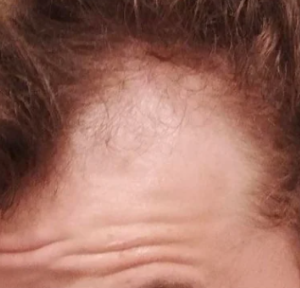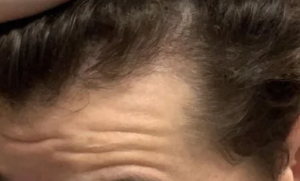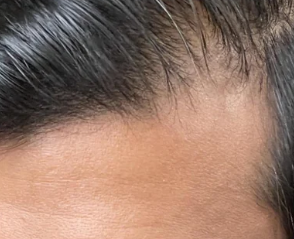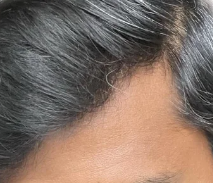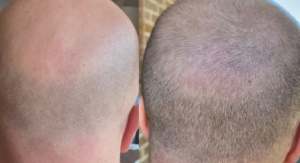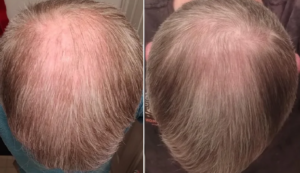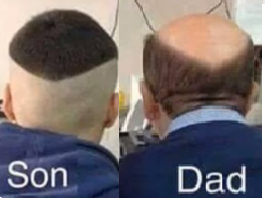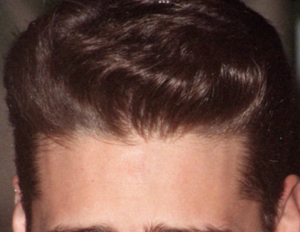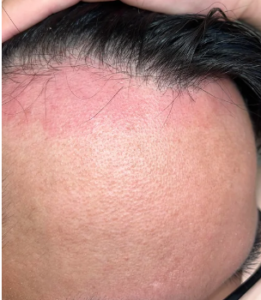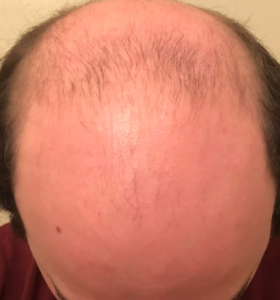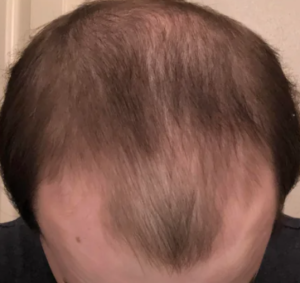To answer your question, I need to see photos, know your age, understand what you have been doing to grow your hair and learn about your family history.
My hairline has both started thinning and receding; I’m probably a Norwood 2/2.5. He shows no signs of receding / thinning. I wonder what sort of things could cause this?
I’d say we live pretty identical lives in terms of activity/diet / don’t smoke / medications, nothing crazily out of proportion. So I wonder what the difference in us could be. I will say as well I’ve had a full chest of hair for 3+ years, whereas his is still pretty bare – I was under the assumption that had something to do with DHT. I wonder if there is something I’m missing, like a specific lifestyle choice or an overlooked common day to day activity, which could perhaps provide me with different hormone levels? I know we all age differently blah blah, but I wonder if something like this could be narrowed down to something specific, like a as we are genetically identical twins.
Stress has a lot to do with precipitating hair loss. You both probably handle it differently. He will probably see the same changes, possibly just later than you. I have worked with twins in hair transplant. Way back, I had identical twins who were remarkably different; one was a landscaper, and the other a computer geek. The computer geek wore a hair system and pulled out a lot of his hair, only to find his brother making fun of him.
I did hair transplants on another set of twins about two years ago, and I was challenged to make them EXACTLY the same. I succeeded. I couldn’t tell one from the other before or after the transplant grew. To ensure that I got the identical results, I did both surgeries on the same day and at roughly the same time. At the beginning of the surgery, we drew the hairlines together in the same room. Their mom and dad were there for support. I performed the exact same number of grafts, I will tell you that it produced some anxiety on my side, artistically giving them both an identical look. It was successful!
It may limit the negative effects of DHT which in balding men produces miniaturization which in turn slows down hair growth. Finasteride blocks this process so I guess you can say that it speeds up hair growth while I would say that it reverses miniaturization in which case, the hairs will grow faster.
Drugs like finasteride and dutasteride, usually reverse miniaturized hairs, and not grow hair in a completely bald man; however, some men have very fine miniaturized hairs that they didn’t know existed on their bald head, so I have seen some cases where these men, who thought they were bald, grew hair on finasteride. The photo below shows a 43 y/o male who may reflect what I discussed above. I wish I could have examined him before he went on dutasteride.
Mid 40s, started losing hair in my early 20s. It progressed pretty slowly but consistently over the years and I figured I would let it gracefully fall out. A couple years ago it went into fallout over drive and I’m just not ready to give it up quit yet. Pretty sure the copious amount of stress and anxiety of the last few years could be the culprit here. Started almost exactly 3 months ago
.5 mg Oral fin 5% Topical min twice a day. I’ve had sides taking 1mg fin so I jumped down to .5mg and they pretty much cleared up.
Good job. I would expect that a man in his mid-forties might not respond as well as you did. I suspect that after taking it for a year, you might get complete reversal.
Almost every man who is balding is a responder to finasteride or dutasteride, but the response will be slowing the loss, stopping it, or reversing it. Slowing is hard to show, but there are excellent long-term studies comparing men on finasteride for five years compared with those not on any drug. The finasteride group kept more hair in those five years.
My dermatologist put me on 1.25mgs of oral minoxidil, and I am worried about my heart.
With a dose of 1.25mgs oral minoxidil, cardiac side effects are very rare. If you are healthy and have no cardiac problems today, you may not need to see a cardiologist.
I would like to get this hairline back with a hair transplant. I think the issue is graft angulation or hair direction and also maybe density, but I really want to know how to describe it and understand it and if it can be made “right”.
Most men I know would kill for that hairline, but this is not practical when you have extensive balding. In this photo, there is no recession. In fact, depending on this person’s age, the hairline is yet to mature. If he is under 29, that transition may yet happen. Concerning replicating that hairline in a hair transplant, I do this routinely in women, but we shoot for a mature hairline as the targeted goal in men. I have rarely done this on men with that position or shape; however, I remember one man who was 20 years old and had a million-dollar contract for a daily soap. They told him that his maturing hairline would not make him the sex icon they needed, so I created it on him as his case was unique. He kept his job. Creating this hairline takes more hair, and in balding men, it is not a good idea to put such a lot of hair up front but rather give an age-appropriate mature hairline shape, saving hair for future donor hair for future balding. I wrote an extensive article on hairline shapes; see article here: phenotype article published
Does someone with miniaturized hair who either has shock loss from transplant surgery or accidentally had their miniaturized hair pulled out will finasteride help to regrow them? Or once they’re out, that’s it; the follicle dies, and there can be no more growth?
Miniaturized hair loss from surgical hair transplant shock loss often does not return; however, if that person was on finasteride before the transplant, the miniaturized hairs are prevented from shock loss. If one pulls out miniaturized hairs (I can’t imagine doing this), these hairs may return.
8 months on 5mg fin daily, 5% min twice daily, and hrt(mtf). Thought my hair was unrecoverable before but now I’m so happy.
This is an amazing change. I would like to know how old you are now and how many years you have been so bald. Time is usually a key here because scientists believe that long-term balding like this, greater than 15 years, has already lost its stem cells. With my new company Amplifica which some of you know about, once we know our drug works, then we will tackle some of the longer-term balding patients like you. Also, I would expect the HRT to hamper the growth so I would be wrong here. Congrats.
I have been taking oral finasteride and topical minoxidil for three months. One question, how long can I expect finasteride and Minox to keep my hair around. Since I’m pretty early on in life, I’m worried they’ll grow less effective the more I take them. But, I just don’t know how it works. Is my responding well a good indication they may last longer? I’m hoping to keep my hair for as long as possible, none of this “I’m aiming for 40”, I’m aiming for until I’m on my deathbed and the doctors forget to administer it.
These drugs should keep working; no guarantee, however. I have seen Finasteride go easily 25 years and still hold on to those men’s hair. I would expect minoxidil to do the same, but I don’t have personal experience with it for 25 years as I have with finasteride.
Page 46 of 1238

